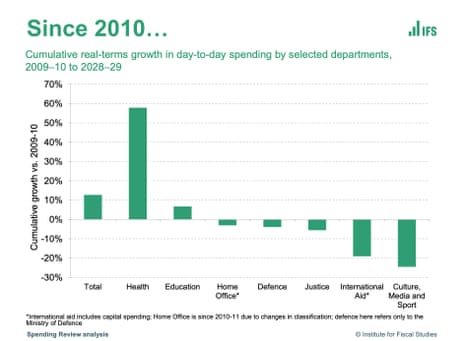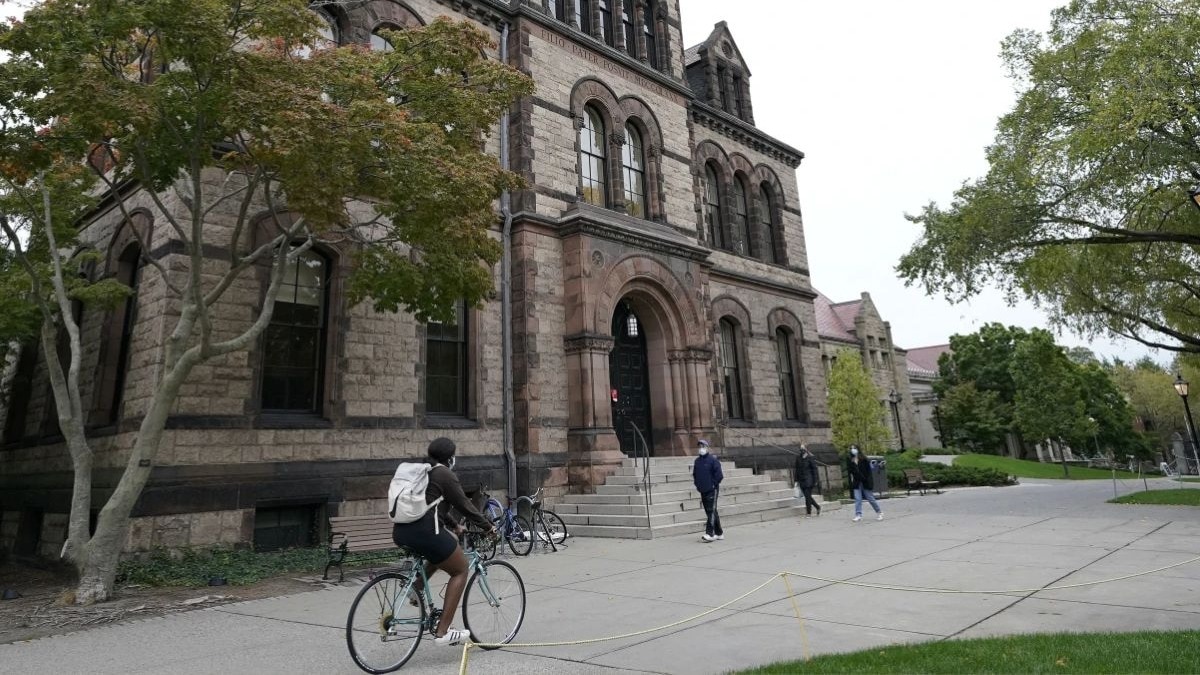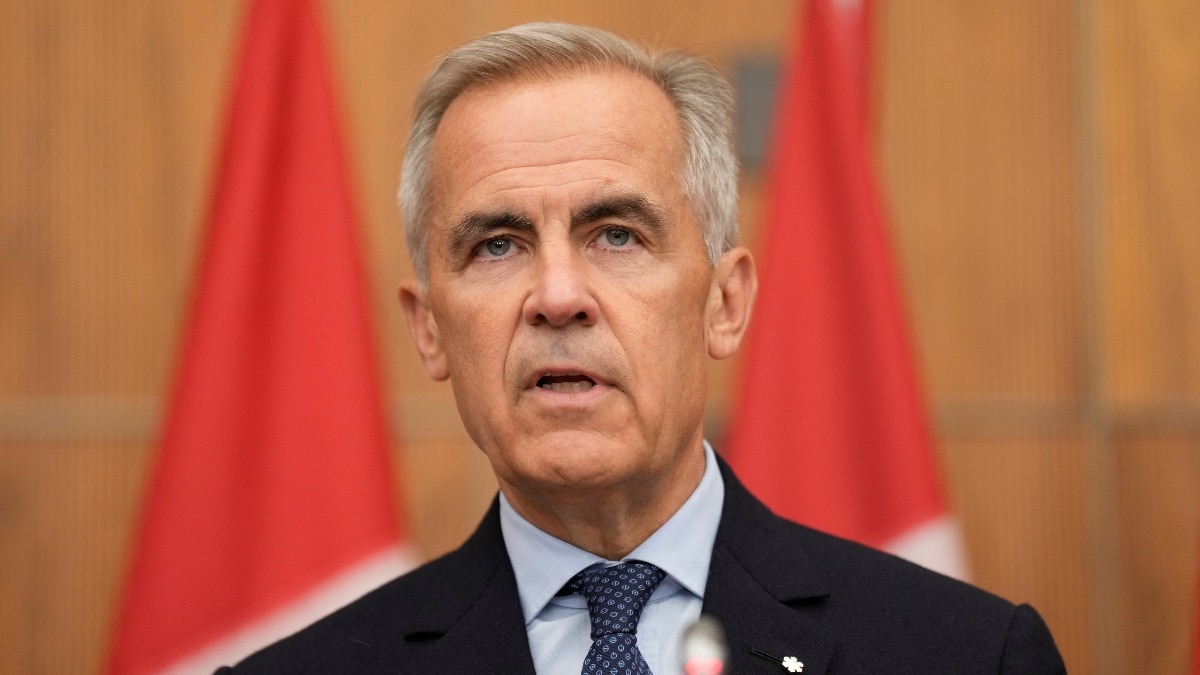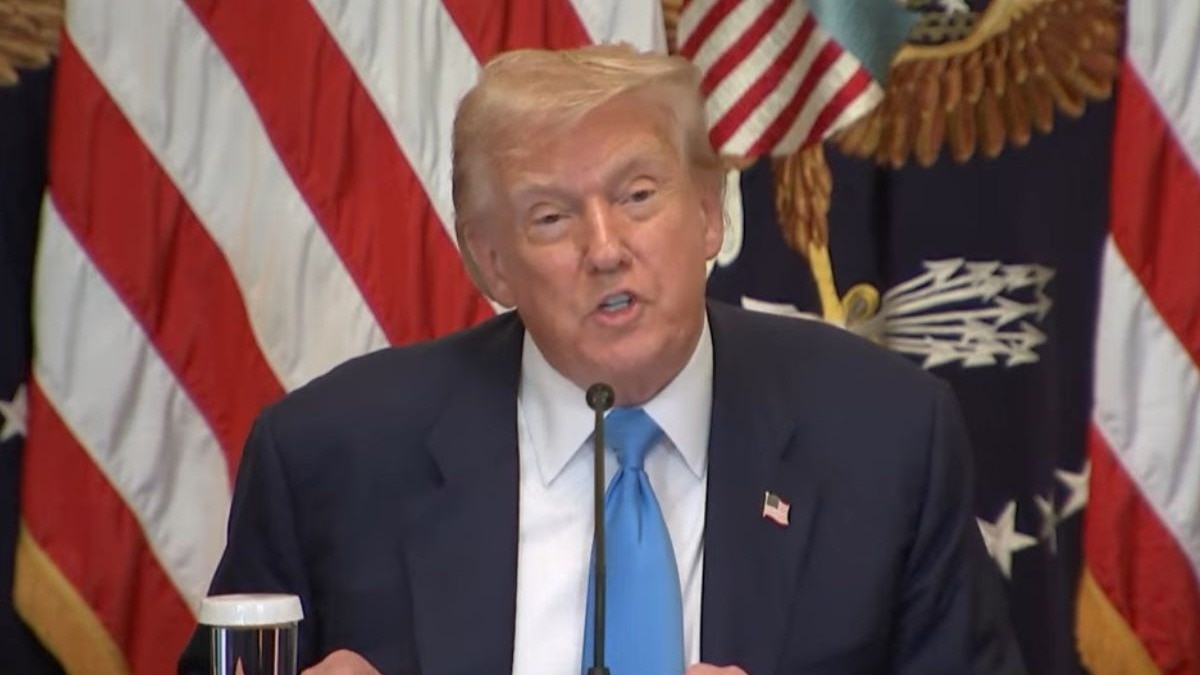Reeves is only 'gnat's whisker' away from having to raise taxes in autumn, Institute for Fiscal Studies says
The Institute for Fiscal Studies has delivered its own verdict on the spending review. Much of what it says overlaps with what the Resolution Foundation concluded (see 9.34am), but some off the language is a bit more colourful. Here are the main points from the opening remarks from Paul Johnson, the IFS’s director.
Johnson suggested Rachel Reeves is a “gnat’s whisker” away from tax rises in the autumn. He said:
Ms Reeves is now going to have all her fingers and all her toes crossed, hoping that the OBR will not be downgrading their forecasts in the autumn. With spending plans set, and “ironclad” fiscal rules being met by gnat’s whisker, any move in the wrong direction will almost certainly spark more tax rises.
He suggested the figures for projected departmental efficiencies savings published by the Treasury were not credible.
[The chancellor] also stressed how this was a zero-based review, looking in detail at every aspect of spending. One wonders how effective that was. We can’t find any particular area of spending the government has decided it wants to withdraw from – other, perhaps, than overseas aid. On the efficiency savings one thing is quite striking. It seems that virtually every department is ripe for exactly the same cut in its administration budgets – 10% for all of them over the three years to 2028-29 and then another 5% in one year, 2029-30 – irrespective of how much they might have grown recently, and irrespective of planned spending increase. That is not the result of a serious department by department analysis. I hesitate to accuse the Treasury of making up numbers, but …
He said government suggestions that the economic outlook has improved over the past year were not true.
Despite some of the rather odd recent claims, neither the economic forecasts nor the public finances have improved relative to the genuinely difficult situation we knew about a year ago. Rather the reverse.
He said he expected he expected the government to end up spending more over the next three years than it set out in the plans yesterday. And he said health and defence were likely to get more money.
While spending reviews are supposed to provide full and final settlements they rarely do – they are nearly always reopened, especially in the last year of the SR period – and almost always in an upwards direction …
Health spending nearly always gets topped up. Growth of 3% a year is below the historic average. It may not even prove enough to fund the official workforce plan and it is at best marginal whether it will be enough to achieve the government’s waiting list targets.
Defence spending is rising to 2.5% of national income by 2027, but no increase thereafter. Given external demands and government promises to get it to 3% of GDP at an unspecified date in the next parliament there will be pressure to increase it further.
He said the spending review would be difficult for Scotland. He explained:
One part of the UK that is going to face some especially sharp choices is Scotland. Its RDEL [day-to-day spending] funding from Westminster will rise not by 1.2% a year over the SR period but by just 0.8% a year. This is a result of the so-called “Barnett squeeze” which, as budgets rise, is designed ever so slowly to reduce the large gap in per capita spending between Scotland and England. (Spending per head in Scotland is still 20-25% higher than in England – hence “free” higher education and social care, higher public sector pay, and so on). Because the Scottish government is prioritising spending on welfare benefits, it could actually be looking at cuts in spending on public services in 2027-28.
Key events Show key events only Please turn on JavaScript to use this feature
Northern Ireland minister rejects call to resign as political unity over riots cracks
A minister in Northern Ireland has rejected calls to resign, as the display of political unity amid three nights of violence fractured after a leisure centre in Larne was set on fire, Shane Harrison reports.
The Resolution Foundation thinktank has described the spending review as evidence that the UK is morphing into a “national health state”. (See 9.34am.)
This chart, from the Institute for Fiscal Studies’ spending review briefing, illustrates the point.

Tories urge information watchdog to investigate Reform UK's Doge, saying it could be 'cybersecurity disaster'
The Conservatives have urged the information watchdog to open an investigation into Reform UK, because of risks around data it has requested for its town hall cost-cutting drive, PA Media reports. PA says:
Nigel Farage’s political party has requested a broad swathe of information from the councils it now controls across England, as it begins an initiative to drive down spending based on the USA’s department of government efficiency, also known as “Doge”.
But shadow communities secretary Kevin Hollinrake warned that handing the data to Reform is a “cyber-security disaster waiting to happen” as he wrote to the Information Commissioner’s Office (ICO) calling for an investigation.
Data about the identities of whistleblowers, the names and addresses of people who receive meals on wheels, and the amount of cash foster carers receive could be part of the broad package Reform has requested, the Tories claimed.
The Tories also questioned who would be handling this data on behalf of Reform UK, which has said it will use a “unit of software engineers, data analysts and forensic auditors” to analyse the information.
In his letter to the ICO seen by the PA news agency, Hollinrake said: “I believe that the scale of such unauthorised data transfers across local government is a cybersecurity disaster waiting to happen. There is a strong public interest in the information commissioner taking pro-active steps to investigate and, if necessary, issue enforcement notices against the public authorities and Reform UK Ltd.
“I also suspect that council staff would welcome the support of the information commissioner, given the clear threats to sack them if they sound the alarm on breaches of the law. It is also not in the financial interests of local taxpayers for their council to be exposed to the liability of fines for breaching the law.”
In response, Zia Yusuf, the former Reform chair who is now leading its Doge operation, posted a message on social media saying:
Wow.
The failed Tory party, fighting for its existence, has written to the ICO to try to block Reform’s DOGE.
They are desperate to cover up the corruption and waste of their now deposed local government regimes.
It will not work.
Just as they plundered hundreds of millions from the british taxpayers during COVID, they have done the same at councils.
Reform councillors were voted in to expose it, and with the help of Reform’s DOGE team, they will do just that
Farmers' Union accuses Defra of making 'misleading' claims about generosity of grants for farmers

Helena Horton
Helena Horton is a Guardian environment reporter.
The Farmers’ Union has accused Steve Reed, the environment secretary, of “misleading” spending review claims over the farming budget.
The Department for Environment, Food and Rural Affairs (Defra) has claimed payments for the nature-friendly farming programme, called the environment land management schemes (ELMS), will “skyrocket” from £800m in 2023/24 to £2bn in 2028/29. This, on the face of it, looks like a large funding increase and has been reported by some as such.
However, that would be misleading. This is because after the UK left the EU, farmers were promised that their subsidies would be the same as they were under the EU, and were promised a figure of £2.4bn a year.
The Tory government at the time decided that, rather than being paid per acre, farmers should be paid for improving nature, so it devised the ELMS schemes. But while these were being set up, acreage payments known as basic payments schemes (BPS) were kept. These would be cut each year as the ELMS increased and are due to be phased out entirely by 2028.
So, farmers currently get the £2.4bn a year in two streams - the ELMS and the BPS - as well as a smaller amount of money in grants for things like robotics trials.
By 2028/29 they will not be paid BPS so will only get ELMS and this will have a value of £2bn. There may be some other grants available to top this up, but this has not been confirmed.
In reality, the government has promised an average of £2.3bn a year up to 2028/29 for the farming budget, which is a £100m a year cut, and by the end of the spending period the budget shrinks to not much more than £2bn.
NFU senior economist Sanjay Dhanda said Defra has been “misleading” in its claims. He said:
A key pillar of Defra’s budget is the continued investment in ELMs, with funding set to rise to £2bn by 2028/29 compared to the £1.8bn earmarked in the autumn 2024 budget. While the government has framed this as a significant uplift from the £800m spent in 2023/24, this comparison is misleading as ELMs was not fully operational at that point, and de-linked payments (BPS) absorbed a large share of funding.
The actual increase is a modest £200m over four years – barely sufficient to keep pace with inflation, let alone scale up delivery.
Government urged to review 'rubbish' law governing how MPs approve treaties, as Commons welcomes Gibraltar deal
David Lammy, the foreign secretary, has been urged to review the “rubbish” system in place for parliament to approve treaties.
The criticism was made by Emily Thornberry, the Labour chair of the foreign affairs committee, during a statement on the agreement the government has reached with the EU over Gibraltar.
While Priti Patel, the shadow foreign secretary, said the opposition wanted to read the full text of the agreement before making a final judgment, she and other opposition MPs speaking were generally supportive of the deal, which settles the one outstanding dispute between the UK and the EU left unresolved since Brexit.
Thornberry congratulated Lammy and his negotiating partners for getting deal, but she said she was concerned by his comment that the deal would be considered by MPs in the usual way under the Crag (Constitutonal Reform and Governance Act) process.
The Act, passed by the coalition government, in theory allows MPs to delay ratification of a treaty if they don’t like it. But they can only delay by voting against, and there is no obligation on the government to schedule a vote, and so in practice they never get the chance to hold up treaties.
Thornberry said:
I have to say, I think it’s rubbish, the Crag process, and I do ask [Lammy] to look again at it.
MPs should have the right to vote on treaties, she said. She went on:
The [current] requirement is that the government lays before parliament a treaty which this house may resolve not to ratify during a 21-day delay. How that’s done, frankly, I don’t know because it’s never been done …
The Crag process is obscure. It is out of date. It is basically unfit for 21st century, unfit for this place, and I do ask the foreign secretary to look at it again.
In response, Lammy said he heard what Thornberry was saying, and wanted to ensure there would be proper parliamentary scrutiny of the treaty.
At the Downing Street lobby briefing the a No 10 spokesperson said that failure to reach a deal on Gibraltar could have cost the UK hundreds of millions of pounds. He said:
If an agreement was not reached, the EU’s incoming system of entry and exit control would have meant a hard border.
It would have cost Gibraltar hundreds of millions a year, ruining Gibraltar’s economy and leaving the UK taxpayer to pick up the bill.
Badenoch accuses Today's Emma Barnett of not understanding that public spending can be cut without impact on services

Peter Walker
Peter Walker is a senior Guardian political correspondent.
Businesses need to “get on the pitch” and come up with ideas for a leaner, more growth-oriented state, Kemi Badenoch has said at a speech in London.
Addressing an investment conference a day after the spending review, the Conservative leader gave no new specifics about how a government she led might shrink the state or cut regulation, instead appealing to the business-heavy audience to help show a path.
She said:
So my message to business is this: I’m on your side, but I need you to be online too. You can’t sit back and hope that someone else is coming along to fix this. You need to speak up. You need to support policies that back enterprise, and you need to challenge those who want more state control. Don’t just wait for other politicians to do it. You need to get on the pitch too.
So bring us your ideas. We’re in opposition. Now is the time for us to get them. Let’s hear your policies, your real world solutions, not just the things that are going to be great for your business, but bad for everybody else, but the things that are going to be good for the whole economy.
Elsewhere in the speech and media Q&A, Badenoch dismissed worries about the Tories’ low polling numbers, saying these could change hugely before the next election and insisting there was “a gap in the market for a serious centre-right plan”.
At one point she referenced her slightly grumpy Radio 4 interview earlier on Tuesday (see 9.59am), saying she had been “going in a loop with an interviewer [Emma Barnett] who didn’t understand that there are other ways to reduce the size of the state, and that not everything the state does is public services”.
Reeves is only 'gnat's whisker' away from having to raise taxes in autumn, Institute for Fiscal Studies says
The Institute for Fiscal Studies has delivered its own verdict on the spending review. Much of what it says overlaps with what the Resolution Foundation concluded (see 9.34am), but some off the language is a bit more colourful. Here are the main points from the opening remarks from Paul Johnson, the IFS’s director.
Johnson suggested Rachel Reeves is a “gnat’s whisker” away from tax rises in the autumn. He said:
Ms Reeves is now going to have all her fingers and all her toes crossed, hoping that the OBR will not be downgrading their forecasts in the autumn. With spending plans set, and “ironclad” fiscal rules being met by gnat’s whisker, any move in the wrong direction will almost certainly spark more tax rises.
He suggested the figures for projected departmental efficiencies savings published by the Treasury were not credible.
[The chancellor] also stressed how this was a zero-based review, looking in detail at every aspect of spending. One wonders how effective that was. We can’t find any particular area of spending the government has decided it wants to withdraw from – other, perhaps, than overseas aid. On the efficiency savings one thing is quite striking. It seems that virtually every department is ripe for exactly the same cut in its administration budgets – 10% for all of them over the three years to 2028-29 and then another 5% in one year, 2029-30 – irrespective of how much they might have grown recently, and irrespective of planned spending increase. That is not the result of a serious department by department analysis. I hesitate to accuse the Treasury of making up numbers, but …
He said government suggestions that the economic outlook has improved over the past year were not true.
Despite some of the rather odd recent claims, neither the economic forecasts nor the public finances have improved relative to the genuinely difficult situation we knew about a year ago. Rather the reverse.
He said he expected he expected the government to end up spending more over the next three years than it set out in the plans yesterday. And he said health and defence were likely to get more money.
While spending reviews are supposed to provide full and final settlements they rarely do – they are nearly always reopened, especially in the last year of the SR period – and almost always in an upwards direction …
Health spending nearly always gets topped up. Growth of 3% a year is below the historic average. It may not even prove enough to fund the official workforce plan and it is at best marginal whether it will be enough to achieve the government’s waiting list targets.
Defence spending is rising to 2.5% of national income by 2027, but no increase thereafter. Given external demands and government promises to get it to 3% of GDP at an unspecified date in the next parliament there will be pressure to increase it further.
He said the spending review would be difficult for Scotland. He explained:
One part of the UK that is going to face some especially sharp choices is Scotland. Its RDEL [day-to-day spending] funding from Westminster will rise not by 1.2% a year over the SR period but by just 0.8% a year. This is a result of the so-called “Barnett squeeze” which, as budgets rise, is designed ever so slowly to reduce the large gap in per capita spending between Scotland and England. (Spending per head in Scotland is still 20-25% higher than in England – hence “free” higher education and social care, higher public sector pay, and so on). Because the Scottish government is prioritising spending on welfare benefits, it could actually be looking at cuts in spending on public services in 2027-28.
‘Disastrous’: John Swinney facing SNP backlash after Hamilton byelection loss
SNP activists and senior figures have vented their frustrations at their leader, John Swinney, after a “disastrous” byelection campaign that saw the party lose a pivotal Holyrood seat to Scottish Labour, Libby Brooks reports.
Next month the Guardian is holding an event to mark the Labour government being in office for a year. On Wednesday 9 July, the Guardian’s political editor Pippa Crerar will chair a panel of experts at the Conway Hall in London, including the Guardian columnist Rafael Behr, Salma Shah, the former Conservative special adviser to Sajid Javid and Frances O’Grady, Labour peer and former TUC general secretary, who will be discussing what’s gone right – and what’s gone wrong. There are more details, including information about how to apply for tickets, here.
My colleague Peter Walker has been listening to Kemi Badenoch’s speech at the Peel Hunt FTSE250 conference this morning. He has posted these on Bluesky.
Kemi Badenoch is making a speech in response to the spending review at an investment event in the City. While there’s a good reason for such an audience in this instance, it does seem she mainly does speeches in central London recently.
Badenoch is talking about economics and a “morass of regulation”. It’s quite content-rich, but as tends to be the case with her, feels more like an address to a policy think tank than a political speech. For some this might be good. But some of her MPs would like a bit more... excitement.
Badenoch says there is “a gap in the market foir a serious centre right plan… that is the space that I fill.” And yet the only specific plans she mentions are reversing the inheritance tax changes for farms and ending VAT on private school feels. These are arguably a bit peripheral.
Badenoch references her slightly peevish R4 interview this morning, and complains about “an interviewer who didn’t understand that there are other ways to reduce the size of the state”. That’s Emma Barnett told.
The speech is over, after 12 mins. A good proportion of it felt like an appeal to the investors in the audience to start engaging with - and donating to - her party.
I will post more from the speech when I’ve seen the text.
Liz Kendall says government won't wait for outcome of Pip assessment review before cutting Pip eligibility
Rachel Reeves told the Today programme this morning that the government would not U-turn on its proposed cuts to sickness and disability benefits, while also saying that ministers would listen to “representations” from people wanting changes. (See 10.14am.)
As for what this means, there is more detail in a letter that Liz Kendall, the work and pensions secretary, send to the Commons work and pensions committee about the cuts. It was published by the committee on its website yesterday.
Kendall confirmed that the government is conducting a review of how the assesment for Pip (the personal independence payment –a non-means tested benefit for disabled people) is carried out. This will be led by Stephen Timms, the disability minister.
But she also said that the government needs to legislate urgently on its plans, because the bill needs to pass by November for the benefit changes to be implemented in time for the 2026-27 financial year. She said the bill would need to start going through parliament before the Timms review was finished, and this meant the key changes were not subject to review.
She explained:
We have consistently been clear that we are not consulting on every proposal. Instead, parliament will have the opportunity to fully debate, propose amendments to, and vote on areas where we have announced urgent reforms that are not subject to consultation.
With Pip caseload and costs forecast to continue rising, reforms are needed now to make the system sustainable, while supporting those people with the greatest needs.
And, referring to the Timms review, she says:
Our long-term ambition is to make Pip fit for the future for those it supports, which is why we have recently launched a wider review of the Pip assessment … The Pip assessment review will rightly take time and require extensive engagement, and we cannot wait for its conclusion to make the urgently needed changes to the Pip eligibility criteria.
Cutting eligibiligy for Pip was one of the main proposals, and the most controversial, in the Pathways to Work green paper published in March. There is a summary of all the plans here. The government wants to legislate to change Pip so people will need to score a minimum of four points in at least one activity to qualify for the “daily living element” from November 2026. In the green paper it said: “We are not consulting on this measure.”
The government is due to bring a bill implementing these changes to the Commons for second reading very soon.
Reeves rules out disability benefit cuts U-turn but says rules may be tweaked
Here is Eleni Courea’s story on Rachel Reeves ruling out a U-turn on the cuts to sickness and disability benefits.
Badenoch says size of state should be smaller, arguing it 'can't do everything'
Kemi Badenoch has also written an article for the Times saying she wants to see the size of the state reduced. She says:
Cutting spending isn’t about austerity. It’s about smarter government. A state that does fewer things — but does them properly. One that protects borders, enforces the rules, defends property rights, and creates a climate where business can thrive.
As a country we’ve lost the courage to say the obvious: that government can’t do everything. That the state can’t fix every problem. And that when we punish the people who create growth — the business owners, investors, entrepreneurs — the whole country loses.
In her Today programme, Emma Barnett, the presenter, quoted this article, and asked Barnett what she meant when she said there were lots of problems the government could not fix. Badenoch replied:
There is a lot that government does that has nothing to do with public services.
We have endless quangos. We have endless sort of busybody work inspections. We can cut down on things like planning. There’s a lot that the government says they want to do in terms of getting housebuilding going. I want us to see what we can do in terms of deregulation.
But, when Barnett asked her to give specific examples of what she would cut, Badenoch said she would not set that out now because the election was a long way away.

 1 month ago
1 month ago

















